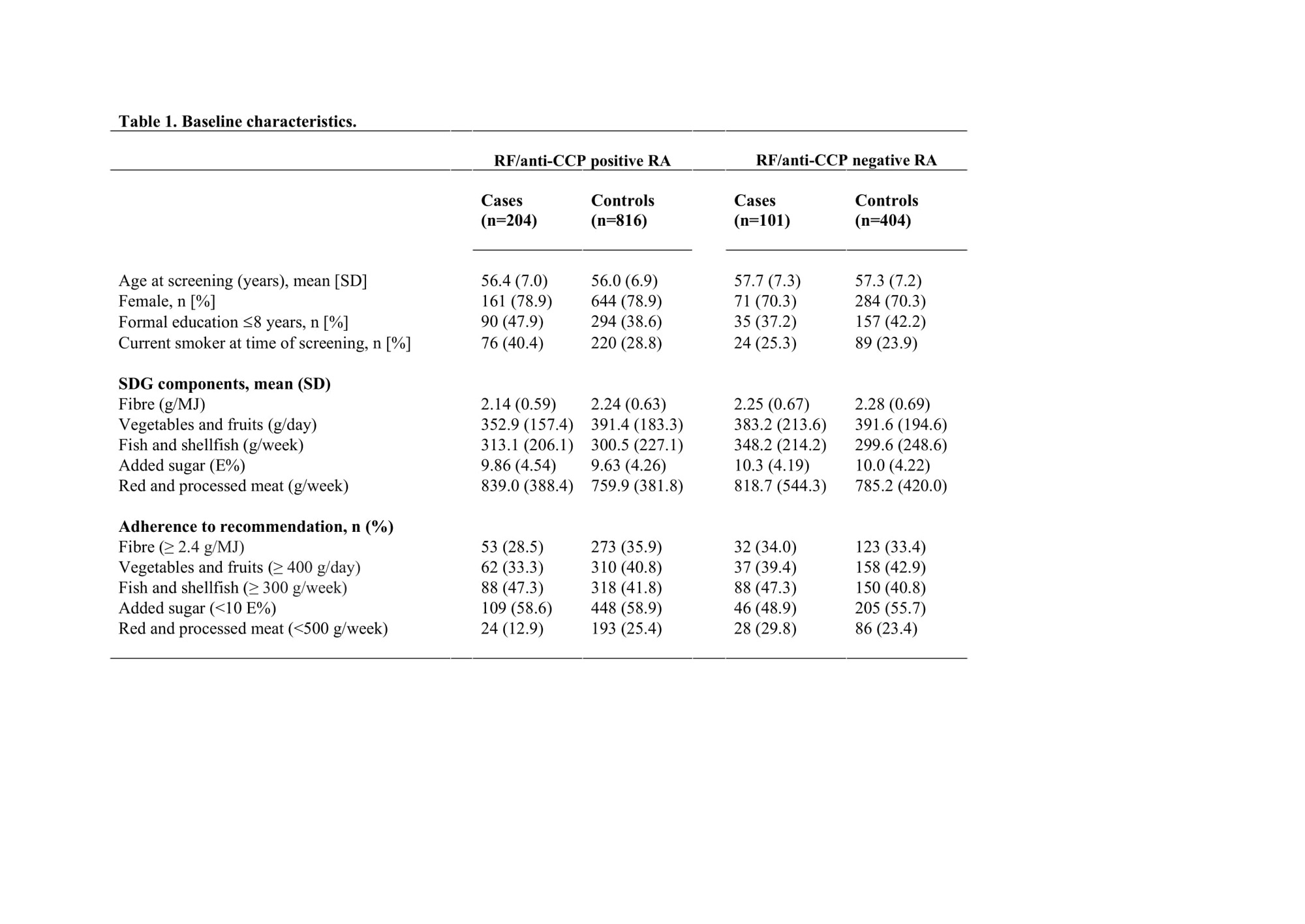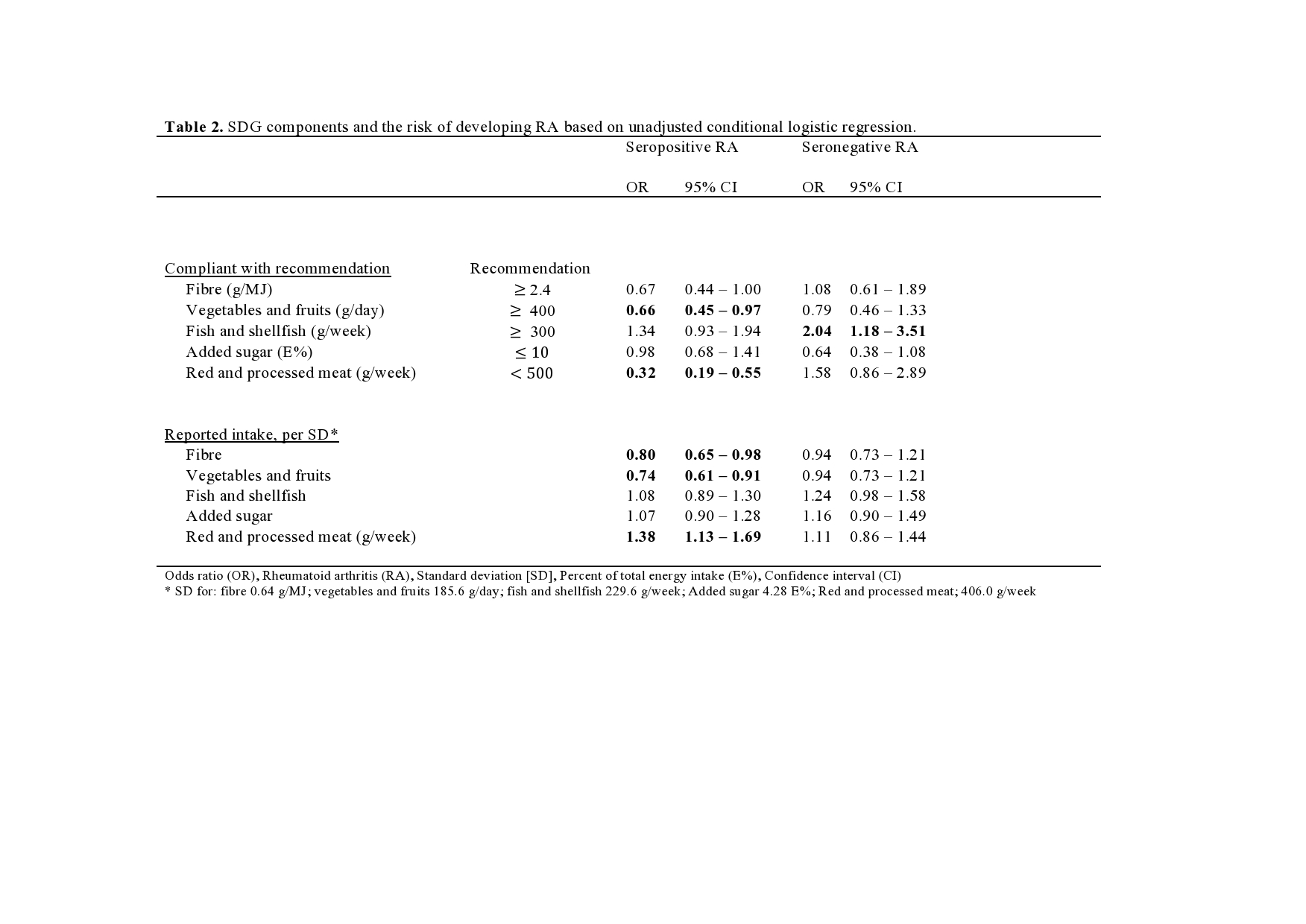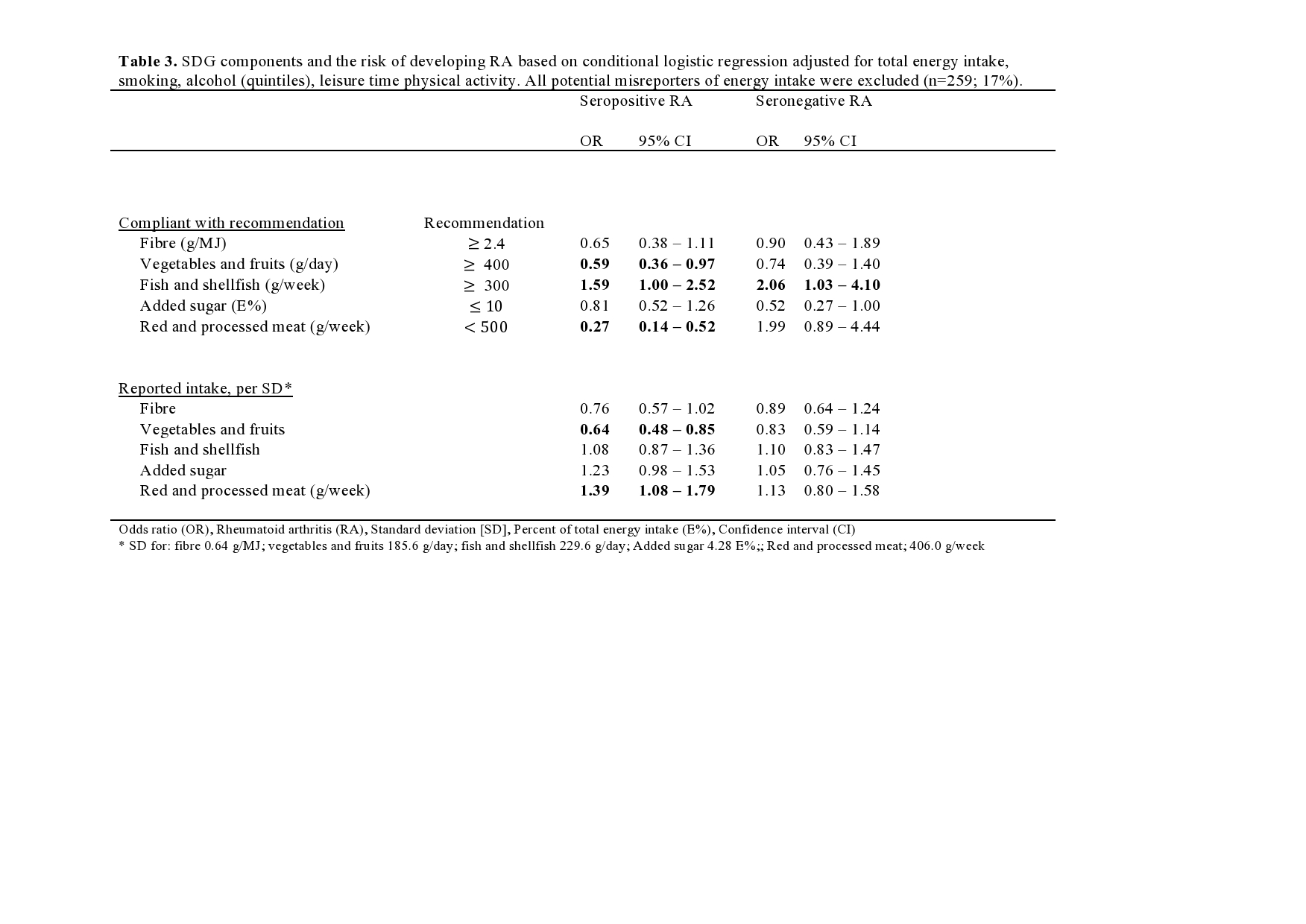Session Information
Date: Sunday, November 12, 2023
Title: (0380–0422) RA – Diagnosis, Manifestations, and Outcomes Poster I
Session Type: Poster Session A
Session Time: 9:00AM-11:00AM
Background/Purpose: Healthy eating habits might prevent the development of rheumatoid arthritis (RA). We aimed to examine the relation between adherence to dietary recommendations and the risk of RA.
Methods: A nested case-control study was performed including participants from a population-based survey conducted in 1991-1996. Cases diagnosed with RA from inclusion until December 2016 were identified through register linkage and validated in a structured process. Four controls for each case, matched for sex, year of birth, and year of inclusion, were included. The controls were alive and RA-free when the index person was diagnosed with RA. Diet was assessed using a modified diet history method comprising of a seven-day menu book, a diet history questionnaire, and a complementary diet history interview.
According to the Swedish Dietary Guidelines (SDG) from 2015, a substantial daily intake of vegetables and fruits, fish and wholegrain products is recommended, whereas red meat and added sugars should be limited. Cut-off values for adherence were based on a previously validated Diet Quality Index, except for red and processed meat and added sugars, which were based on the SDG from 2015 and the World Health Organization guidelines from 2015 for sugar intake for adults, respectively.
Conditional logistic regression analysis was applied to study the relation between fibers, vegetables and fruits, fish, added sugars and red meat, and RA, with exposures treated as dichotomous (compliant with dietary recommendation or not) and continuous variables per standard deviation. Analyses were stratified for seropositive (positive for rheumatoid factor (RF) and/or anti-cyclic citrullinated peptide antibodies (anti-CCP) and seronegative (negative for RF and anti-CCP) RA. Multivariable models were designed in which covariates (smoking, alcohol and leisure time physical activity) that have been associated with both diet and RA were added. All multivariable models were adjusted for total energy intake and excluded potential misreporters of total energy intake.
Results: In the study population, 204 cases of seropositive RA and 101 cases of seronegative RA were identified (Table 1). Recommended intakes of vegetables and fruits ( >400 g/week) and red meat (< 500 g/week) were associated with lower risks of seropositive, but not seronegative RA (Table 2), with similar findings in multivariable-adjusted models (odds ratios (ORs) for seropositive RA 0.59; 95% CI 0.36 – 0.97 and 0.27; 95% CI 0.14 – 0.52, respectively) (Table 3). There were corresponding associations with seropositive RA for continuous variables; for red meat OR 1.39 per SD; 95% CI 1.09 – 1.79, for vegetables and fruits OR 0.64 per SD; 95% CI 0.48 – 0.85) (Table 3). Adherence to recommended intake of fish was associated with an increased risk of RA, in particular seronegative disease, although there was no significant linear association with fish intake (Table 2, 3).
Conclusion: Adherence to recommended intakes of red meat as well as vegetables and fruits were associated with a decreased risk of developing seropositive RA. These results indicate that compliance with dietary guidelines may have differential effects on seropositive and seronegative RA.
To cite this abstract in AMA style:
Bäcklund R, Drake I, Bergström U, Compagno M, Sonestedt E, Turesson C. Higher Intakes of Red Meat Are Associated with an Increased Risk of Developing Seropositive but Not Seronegative Rheumatoid Arthritis – Results from a Nested Case-Control Study [abstract]. Arthritis Rheumatol. 2023; 75 (suppl 9). https://acrabstracts.org/abstract/higher-intakes-of-red-meat-are-associated-with-an-increased-risk-of-developing-seropositive-but-not-seronegative-rheumatoid-arthritis-results-from-a-nested-case-control-study/. Accessed .« Back to ACR Convergence 2023
ACR Meeting Abstracts - https://acrabstracts.org/abstract/higher-intakes-of-red-meat-are-associated-with-an-increased-risk-of-developing-seropositive-but-not-seronegative-rheumatoid-arthritis-results-from-a-nested-case-control-study/



